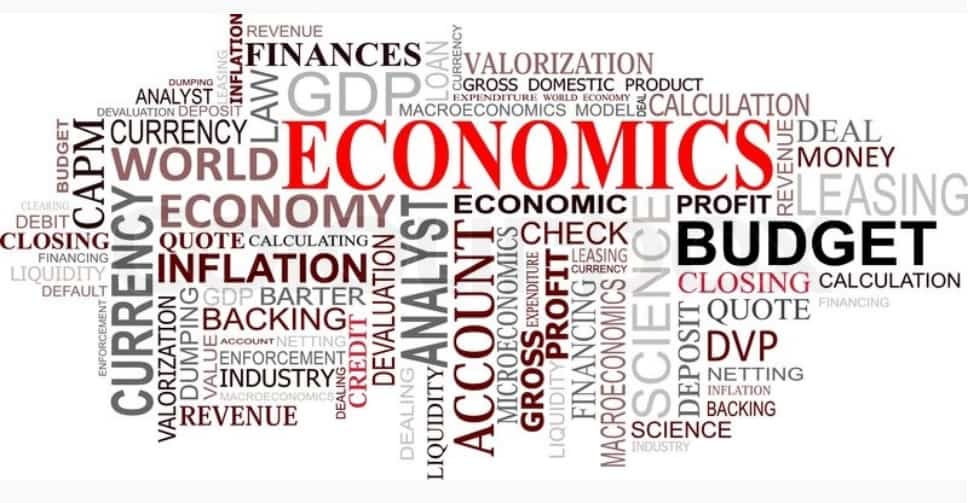Economics is a fascinating and complex subject that provides a framework for understanding the world around us. From the decisions we make in our daily lives to the policies that shape our societies and economies, economics plays a crucial role in shaping our lives. In this article, we will explore the essence of studying economics and how it can help us gain a better understanding of the world around us.
Table of contents
- Understanding the Principles of Supply and Demand
- Scarcity: The Fundamental Problem of Economics
- Opportunity Cost: Making Choices in a World of Limited Resources
- Macroeconomics: Understanding the Broader Economic Issues
- Microeconomics: Understanding the Individual Choices We Make
- The Role of Government in the Economy
- Applying Economics in Our Daily Lives
- The Importance of Studying Economics in Today’s World
- Conclusion
- Bibliography
Understanding the Principles of Supply and Demand
One of the fundamental principles of economics is the law of supply and demand. This law states that the price of a good or service is determined by the interaction between the quantity of goods or services supplied and the quantity demanded by consumers. Understanding the principles of supply and demand can help us make informed decisions about purchasing goods and services, and can help us understand how changes in the market affect prices.
Scarcity: The Fundamental Problem of Economics
Another fundamental concept in economics is scarcity. Scarcity refers to the idea that there are limited resources available to us, but unlimited wants and needs. This means that we must make choices about how we allocate our resources, which leads to trade-offs and opportunity costs. Understanding the concept of scarcity can help us make informed decisions about how we use our resources and how we prioritize our wants and needs.
Opportunity Cost: Making Choices in a World of Limited Resources
Opportunity cost is the cost of forgoing one choice in order to pursue another. In a world of limited resources, every decision we make has an opportunity cost. For example, choosing to spend money on a vacation means giving up the opportunity to invest that money in a retirement account. Understanding the concept of opportunity cost can help us make better decisions about how we allocate our resources and can help us prioritize our wants and needs.
Macroeconomics: Understanding the Broader Economic Issues
Macroeconomics is the study of the economy as a whole. It focuses on issues such as economic growth, inflation, and unemployment, and how government policies affect these issues. Understanding macroeconomics can help us gain a better understanding of the broader economic issues that affect our lives, such as the impact of economic recessions or the effectiveness of government stimulus packages.
Microeconomics: Understanding the Individual Choices We Make
Microeconomics is the study of how individuals and firms make decisions in a world of limited resources. It focuses on issues such as pricing decisions, market competition, and consumer behavior. Understanding microeconomics can help us gain a better understanding of the individual choices we make in our daily lives, such as why we choose to purchase certain products or how we decide how much to save.
The Role of Government in the Economy
The role of government in the economy is a topic of great debate in economics. Some economists argue that government intervention in the economy is necessary to correct market failures and promote economic growth, while others argue that government intervention can actually lead to inefficiency and reduce economic growth. Understanding the role of government in the economy can help us make informed decisions about policy and understand the impact of government policies on the economy.
Applying Economics in Our Daily Lives
While economics is often associated with complex mathematical models and theories, it can also be applied in everyday life. Understanding the principles of supply and demand, opportunity cost, and how government policies affect the economy can help us make better decisions about our personal finances, such as deciding how much to save, how to invest our money, or how to make informed decisions about purchasing goods and services.
The Importance of Studying Economics in Today’s World
Studying economics is more important than ever in today’s world. As we face global challenges such as climate change, income inequality, and technological disruption, understanding the economic forces at play can help us develop effective solutions to these complex problems. Economics can also help us understand the impact of globalization, trade policies, and financial regulations on our lives and communities.
Conclusion
In conclusion, studying economics can provide us with a valuable framework for understanding the world around us. From understanding the principles of supply and demand to the role of government in the economy, economics can help us make informed decisions about our personal finances and develop effective solutions to complex global challenges. By studying economics, we can gain a better understanding of the forces at play in our economies and societies and make informed decisions that have a positive impact on our lives and communities.
Bibliography
- Mankiw, N. G. (2015). Principles of Microeconomics. Cengage Learning.
- Stiglitz, J. E., & Walsh, C. E. (2015). Economics (4th ed.). W. W. Norton & Company.
- Krugman, P., & Wells, R. (2014). Microeconomics. Worth Publishers.
- Samuelson, P. A., & Nordhaus, W. D. (2010). Economics. McGraw-Hill Education.
- Acemoglu, D., & Robinson, J. A. (2013). Why Nations Fail: The Origins of Power, Prosperity, and Poverty. Crown Business.



 For all latest articles, follow on Google News
For all latest articles, follow on Google News